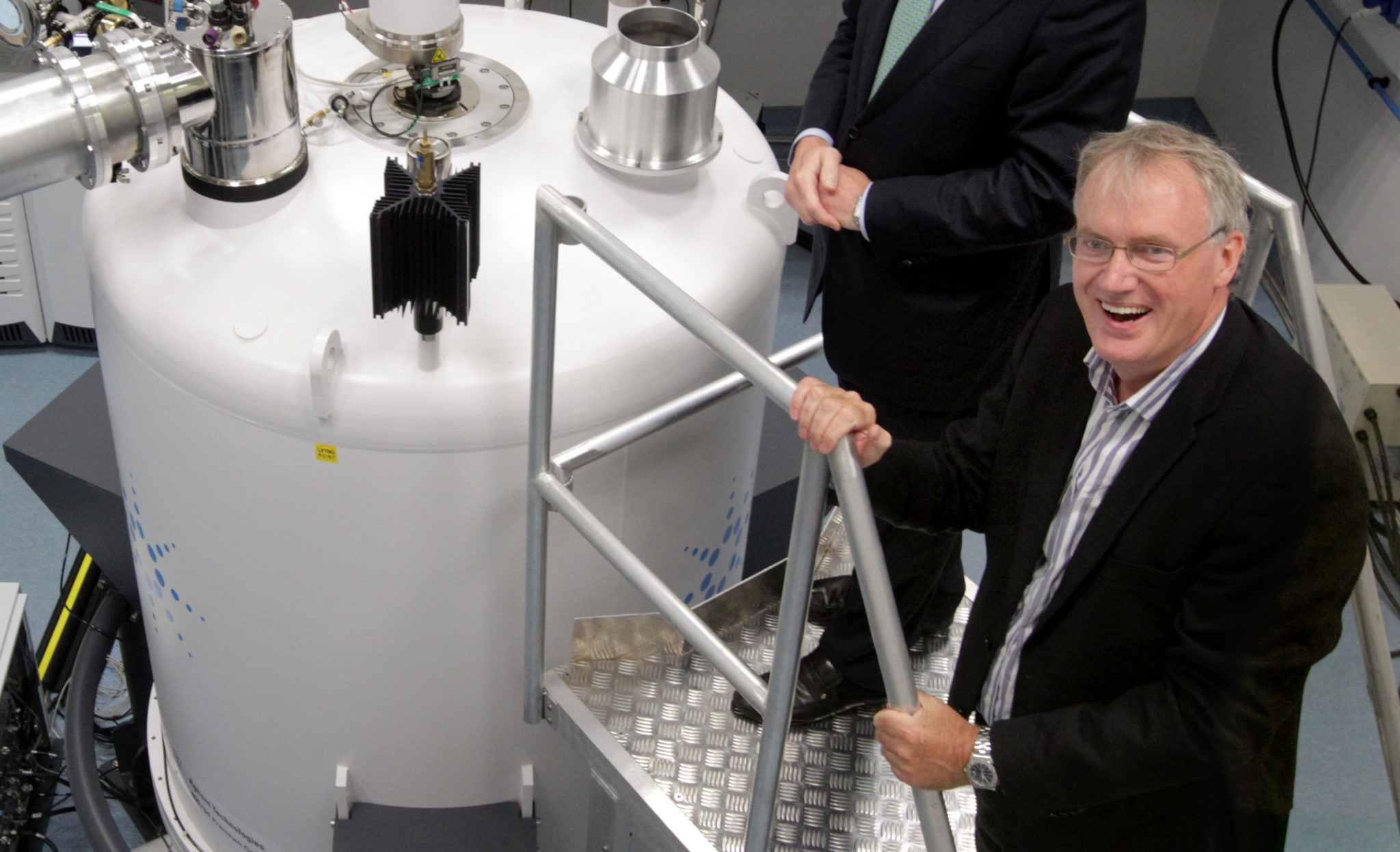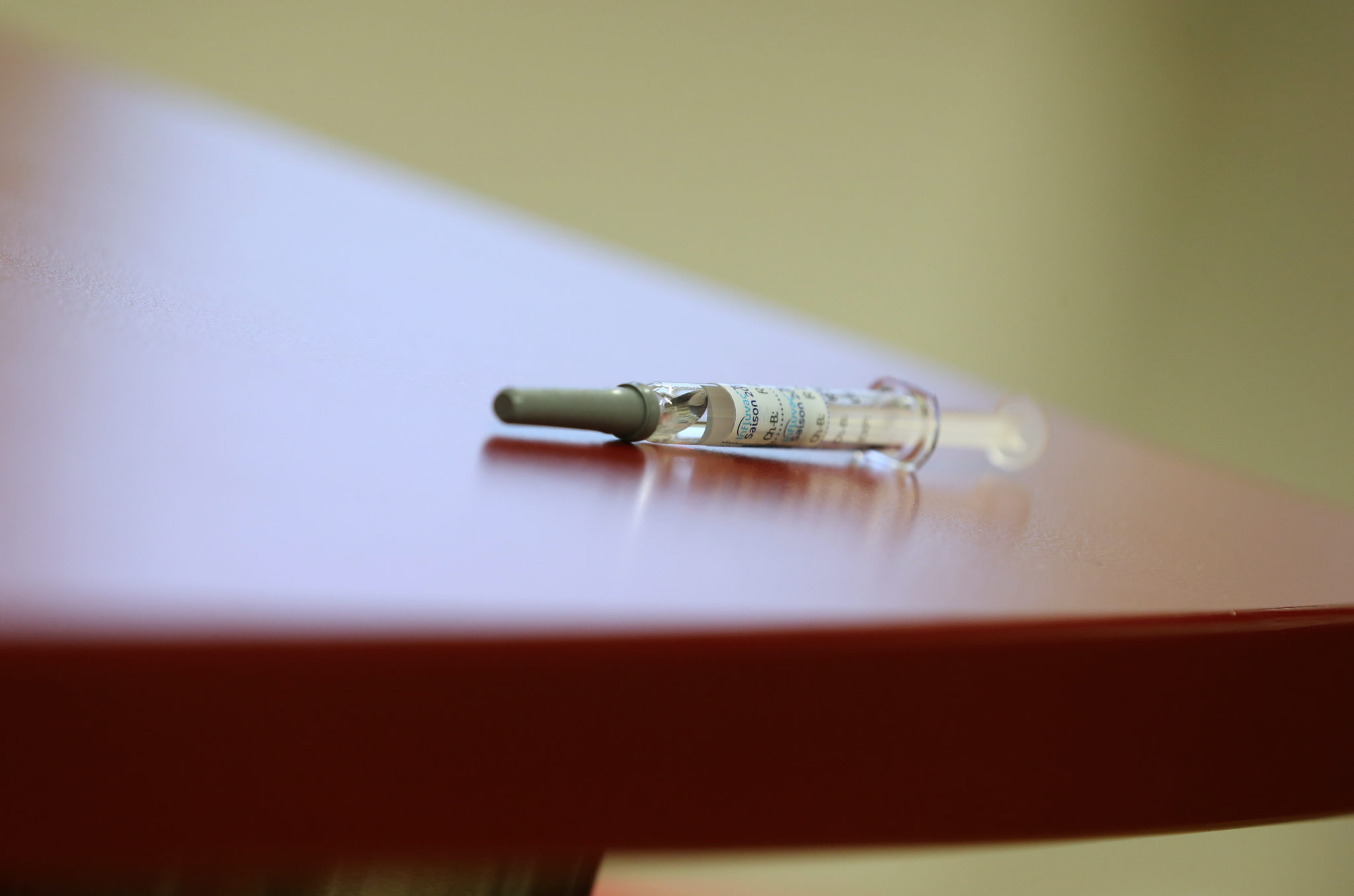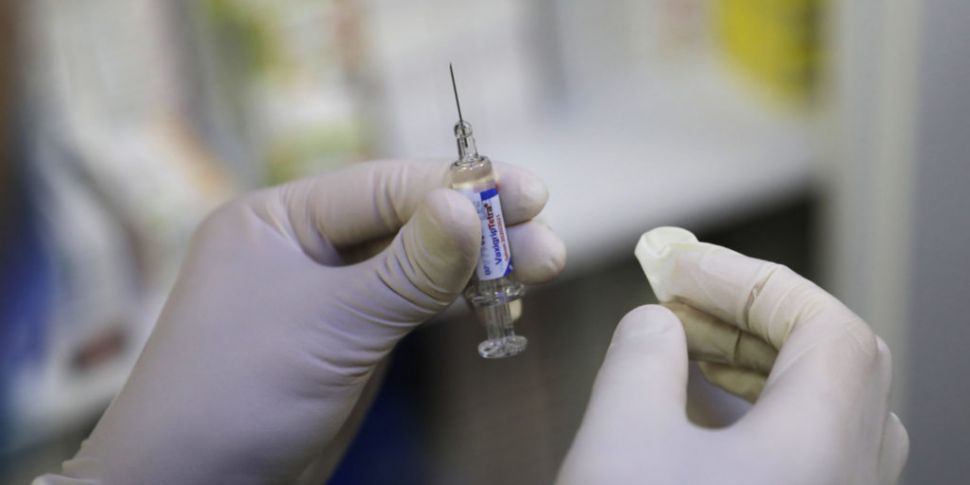Studies suggest as many as eight vaccines could be in production by next summer, according to Professor Luke O’Neill.
On The Pat Kenny Show this morning, the Chair of Biochemistry at Trinity College said vaccine research is “ramping up hugely” around the world.
He said two of the biggest vaccine trials in the world will be publishing their findings by next month.
“You are seeing this future now being mapped out with more accuracy and again, we are getting much closer now to these trials reading out,” he said.
“Certainly, by November, two of the big trials will read out. We will get the results from two of the big trials.
“Pfizer will hopefully have their results by then and AstraZeneca as well hopefully and then Moderna is the third one.”
 Professor Luke O'Neill pictured next to TBSI's nuclear magnetic resonance instrument which has the strongest magnetic field in Ireland, 27-06-2014. Image: Mark Stedman/RollingNews
Professor Luke O'Neill pictured next to TBSI's nuclear magnetic resonance instrument which has the strongest magnetic field in Ireland, 27-06-2014. Image: Mark Stedman/RollingNewsHe said the European Union has already bought up a huge stockpile of vaccine doses from a range of different companies.
“That is happening now to beat the band and, in the EU, the European Commission has bought 700 million doses of vaccine from different companies,” he said.
“They have bought 200 million of the J&J (Johnson & Johnson) one, they have got 300 million of Sanofi’s vaccine and the AstraZeneca one, 200 million doses.
“So, they must be somewhat optimistic if they are stocking up 700 million doses. Ireland gets access to that thankfully because we are part of that network of countries obviously.
“Now 700 million is a good number. You will want to vaccinate about 20% of the population initially – and this will be the vulnerable people and the older people who will be the first to get it.”
 A vaccine syringe on a table in a doctor's office, 21-11-2018. Image: Karl-Josef Hildenbrand/dpa
A vaccine syringe on a table in a doctor's office, 21-11-2018. Image: Karl-Josef Hildenbrand/dpaHe said Barclays Investment Bank published an “amazing study” this week which predicted that eight different vaccines would be in full production by next year.
“They are now predicting that, by the end of the year, there will be three vaccines approved which is very punchy in terms of timelines,” he said.
“By the middle of next year, five more will be approved. So, if Barclays are right, eight vaccines will be approved by the middle of next year and that would be tremendous because you would have a massive amount of vaccines available then.
“Maybe some would be better than others and certain groups might benefit more from different ones.
“Now they have put a percentage on it – it is likely, it is not for definite.
“As we know there are still the usual caveats and concerns and so on – we can’t guarantee any of this.”
 The Janssen Biologics headquarters in the Netherlands, 31-03-2020. Image: PPE/SIPA USA/PA Images
The Janssen Biologics headquarters in the Netherlands, 31-03-2020. Image: PPE/SIPA USA/PA ImagesHe said this week’s suspension of the Johnson & Johnson vaccine trial is not surprising – noting that, “you see adverse events in any trial.”
“The Johnson & Johnson pause is pretty standard,” he said. “Someone on the trial had some kind of adverse event and now they are examining that patient very carefully.
“We don’t even know if it was the placebo or the vaccine side of trial. They haven’t released that yet but it is a standard pause.”
You can listen back here:









